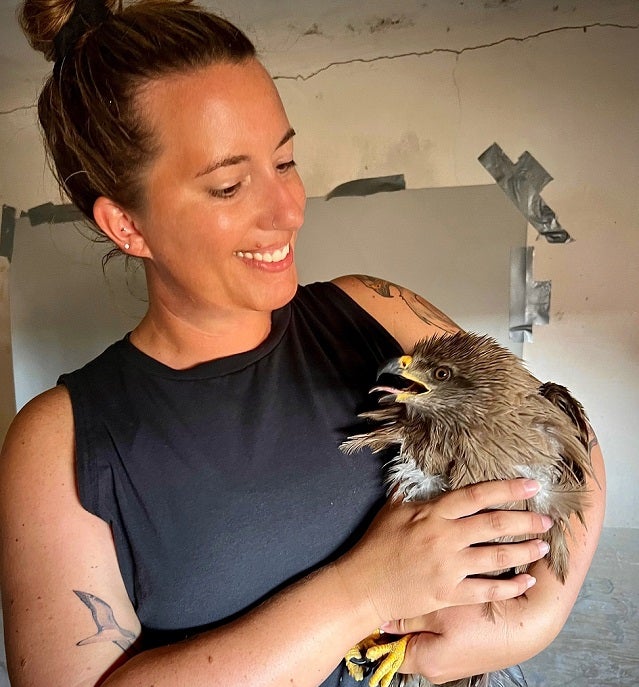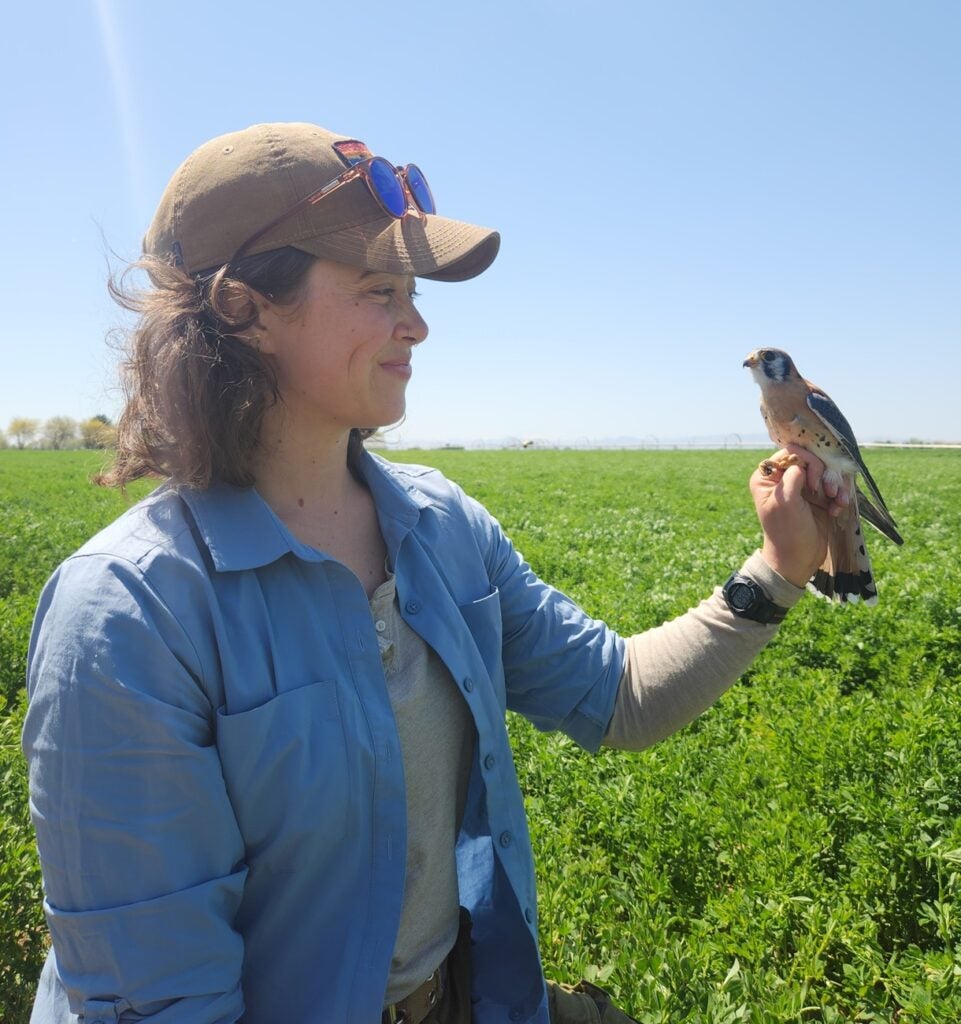The Raptor Research Center is pleased to announce that three of our Boise State University students studying birds of prey each received a $4,000 American Ornithological Society (AOS) Student Research Grant this spring. This honor was extended to Eden Ravecca (Master of Science in Raptor Biology, ’23, and current Ecology, Evolution, and Behavior PhD candidate) and current Master of Science in Raptor Biology students Sarah Scott and Sage Dale.
The awards provide funding for conference presentations and support student research including travel to research facilities, lab expenses such as isotope analysis, training, analysis, and thesis work. The AOS awards are conferred upon students who exhibit high standards of ethical and social behavior.
Eden Ravecca – Ecology, Evolution, and Behavior PhD candidate

Ravecca’s Proposal Title: Ecomorphological Variation and Migration Strategies of Black Kites (Milvus migrans)
Brief Description of Ravecca’s Research: I study how ecomorphology and environmental conditions, such as wind patterns, interact to shape Black Kite migration strategies. My research explores how movement behavior, wing shape, and feather replacement may co-evolve in response to the demands of migration and ongoing environmental change.
Sage Dale – Master of Science in Raptor Biology student

Dale’s Proposal Title: A comparison of immune competence of a holarctic raptor and globally distributed congener
Brief Description of Dale’s Research: I am characterizing the innate immune genes of Toll-like Receptors between the specialized Arctic raptor, the Gyrfalcon, and its globally distributed congener, the Peregrine Falcon, to help forecast adaptive capacity in a changing climate.
Sarah Scott – Master of Science in Raptor Biology student

Scott’s Proposal Title: Investigating Migration Strategies, Haemosporidian Infection and Fitness Consequences in a Partial Migrant Raptor Population
Brief Description of Scott’s Research: I am investigating blood parasite prevalence in American Kestrels that breed in Southwestern Idaho with the aim of understanding how migratory behavior affects infection risk and parasite load, as well as whether infection carries any long-term physiological cost for individuals.